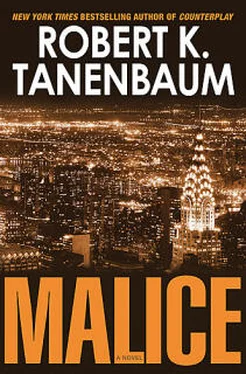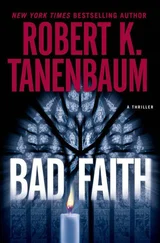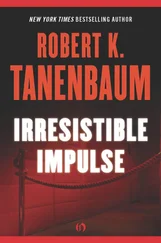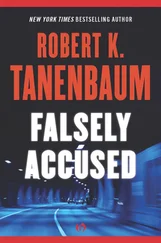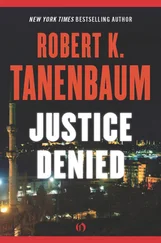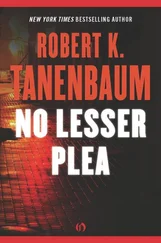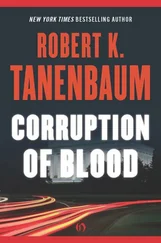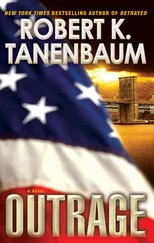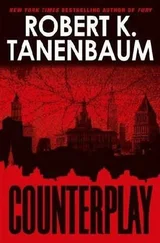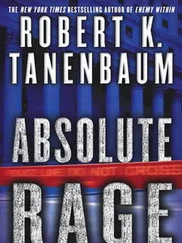Robert Tanenbaum - Malice
Здесь есть возможность читать онлайн «Robert Tanenbaum - Malice» весь текст электронной книги совершенно бесплатно (целиком полную версию без сокращений). В некоторых случаях можно слушать аудио, скачать через торрент в формате fb2 и присутствует краткое содержание. Жанр: Криминальный детектив, на английском языке. Описание произведения, (предисловие) а так же отзывы посетителей доступны на портале библиотеки ЛибКат.
- Название:Malice
- Автор:
- Жанр:
- Год:неизвестен
- ISBN:нет данных
- Рейтинг книги:4 / 5. Голосов: 1
-
Избранное:Добавить в избранное
- Отзывы:
-
Ваша оценка:
- 80
- 1
- 2
- 3
- 4
- 5
Malice: краткое содержание, описание и аннотация
Предлагаем к чтению аннотацию, описание, краткое содержание или предисловие (зависит от того, что написал сам автор книги «Malice»). Если вы не нашли необходимую информацию о книге — напишите в комментариях, мы постараемся отыскать её.
Malice — читать онлайн бесплатно полную книгу (весь текст) целиком
Ниже представлен текст книги, разбитый по страницам. Система сохранения места последней прочитанной страницы, позволяет с удобством читать онлайн бесплатно книгу «Malice», без необходимости каждый раз заново искать на чём Вы остановились. Поставьте закладку, и сможете в любой момент перейти на страницу, на которой закончили чтение.
Интервал:
Закладка:
Although willing to concede the point of incompetence ascribed to an assortment of government intelligence agencies, Karp was one of those observers who was persuaded by evidence, not paranoia. "I didn't realize you were a conspiracy buff, Edward," he said.
"Believe what you will, Mr. Karp," Treacher replied. "But Satan prefers to corrupt from within before attacking from without."
Karp was about to reply, but Treacher had already spotted a likely gathering of tourists across the street and was hurrying toward them. "AND BEHOLD, A PALE HORSE. AND THE NAME OF HIM WHO SAT ON IT WAS DEATH…" he bellowed with his hand outstretched, hoping for a one-or two-dollar bribe that would send him away to the next unfortunate group.
Watching him go, Karp considered how the conspiracy theorists must be looking at Ariadne Stupenagel's stories about a possible connection between a Russian agent and the attack at St. Patrick's Cathedral. The Russian government's denials and the U.S. government's refusal to comment were sure to spark the conspiracy hotline.
Although officially, the police were treating the attack on Stupenagel and Murrow as a run-of-the-mill intruder assault, the reporter wasn't buying it. And for that matter, neither was Karp. She's onto something that's making someone nervous, he thought. He recalled a conversation before the attack that he'd had with his cousin Ivgeny Karchovski, a Brooklyn gangster with the Russian mob who was convinced that certain clandestine Russian and possibly U.S. interests were in collusion to, if not promote, then at least allow certain acts of terrorism to further their own goals under the guise of fighting the so-called War on Terrorism.
Karchovski's views had surprisingly meshed just a week earlier when Karp attended a meeting of the New York Bar Association to hear Senator Tom McCullum speak. The Montana senator was pushing for public support of his calls for a congressional hearing regarding the attack at St. Patrick's. However, the thrust of his talk that night had been to warn about government incursions into the private lives of citizens, using the fear of terrorism to thwart opposition.
"I understand that intelligence gathering in war is fundamental to winning that war," McCullum had said. "But I worry over the growing and seeming unilateral power under the Patriot Act of secret spy agencies and the placement of formerly independent departments under the single umbrella of the U.S. Department of Homeland Security. Where is the oversight when the administration cites 'national security' and keeps the other branches of government, as well as the public, in the dark? Who is watching the watchers? Who says that they are only inspecting the financial records of suspected terrorists? Who makes them follow due process before they subpoena the records of bookstores to find out what citizens are reading? And at what point will the government decide it would rather not have us read certain books?"
McCullum had urged those present "not to compound the tragedy of 9/11 with the loss of our fundamental liberties without a clear and present need to do so."
Not everything McCullum had said was popular with the association. At the cocktail party afterward, Karp had heard plenty of disparaging remarks about "bleeding-heart liberals who endanger us all."
To a degree, Karp agreed with the critics of those on the left who thought they could appease terrorists by talking to them. It reminded him of the pre-World War Two 1930s and Neville Chamberlain's attempts to appease Hitler. However, like McCullum, he was also concerned that the government seemed to use the specter of terrorism to justify tampering with civil liberties.
It was a difficult thought to deal with in front of the gaping hole across Vesey Street, and the sudden chiming of Beethoven's Ninth Symphony on his cell phone startled Karp. He pulled it from his pocket with a scowl. He hated the thing and only carried it to make Marlene happy. He looked at the number flashing on the panel but didn't recognize it or the area code: 208.
"Probably a wrong number," he muttered, but answered. "Hello?"
"Mr. Karp?" a male voice asked.
"Yeah, who wants to know?"
"Excuse the interruption, but your wife, Marlene, gave me your number."
"Who is this?"
"Mikey O'Toole. Fred's brother."
"Mikey O'Toole, what a pleasure!" Karp exclaimed. He and Fred O'Toole had been roommates at Berkeley, where they'd both attended on basketball scholarships. "This is an unexpected surprise, what's up?"
He heard O'Toole take a deep breath before answering. "Well, I'm in a little trouble out here in Idaho, and I was hoping I might ask you for a bit of advice."
Karp's stomach knotted up. Many years earlier, Mikey's brother had called with a similar request and that had ended badly. But there was a debt that remained, so he asked, "What can I do for you?"
5
When Lucy awoke the next morning she thought for a moment that she'd slept her way into a Frederic Remington painting. A barrel-chested Indian stood quietly with his face pointed toward the rising sun and the gray-blue mist of the still slumbering west beyond him. A red Navajo blanket was draped around Jojola's heavily muscled shoulders, allowing his long, dark, gray-streaked hair to flutter in the morning breeze.
In the moments of sobriety when the peyote temporarily released its grip on her mind between hallucinations, she'd been sure that she was going to wake up with a hell of a hangover. But while her body felt drained, as if she'd run a great distance, her mind was crystal clear, sharp as a tack, a steel trap. All the cliches seem apropos, she thought.
However, her dreams had been troubled. She couldn't remember them all and something told her that those she couldn't were not important. The main one remained clear, a dream about crossing the desert by the light of a full moon with John Jojola as her guide. Only he was as he might have been four hundred years earlier, dressed in leggings beneath the traditional black skirt worn by Pueblo Indian men and carrying a bow and arrows. His face was painted dark on one side and light on the other, and he said little during the dream, leading mostly by pointing or going on ahead.
On the dream journey she'd come across St. Teresa, a fifteenth-century Spanish martyr who had been her sort of "invisible friend" since childhood, showing up in times of stress or danger with a warning or sometimes as a somewhat sarcastic witness. The saint had been standing behind a rock outcropping and might have gone unnoticed by Lucy if Jojola hadn't turned his head in that direction and stopped.
In the moonlight, the saint's face looked like porcelain, except there were tears running down her cheeks. Oddly, Lucy could see that there was a red feather in her dark hair.
Me aflijo para usted y su nino, the saint said in her native Spanish.
Why do you grieve for me and my child? Lucy asked. I don't have a child.
The saint reached for Lucy, but Jojola pulled her away. We shouldn't linger with sad spirits, they want company and can sap your will to go on, he said.
Later, as Lucy and Jojola were crossing a shallow oily stream, there was a disturbance in a pool and then an apparition rose slowly. It was Andrew Kane, though he was hardly recognizable; half of his face was eaten away, and seaweed was twined throughout what remained of his blond hair. A crab skittered out of his mouth and dropped back into the water. But she recognized his eyes-the cold, malice-filled blue eyes.
However, he spoke with the voice of a young boy that she recognized as Andy, one of the personalities of the schizophrenic Kane. Andy had briefly taken over from the murderous Andrew Kane during the St. Patrick's hostage crisis and revealed his alter ego's plans to Lucy that had eventually led to his downfall. He will reveal himself when the assassin strikes, Andy cried out. He bears the mark that stands wherever you throw it.
Читать дальшеИнтервал:
Закладка:
Похожие книги на «Malice»
Представляем Вашему вниманию похожие книги на «Malice» списком для выбора. Мы отобрали схожую по названию и смыслу литературу в надежде предоставить читателям больше вариантов отыскать новые, интересные, ещё непрочитанные произведения.
Обсуждение, отзывы о книге «Malice» и просто собственные мнения читателей. Оставьте ваши комментарии, напишите, что Вы думаете о произведении, его смысле или главных героях. Укажите что конкретно понравилось, а что нет, и почему Вы так считаете.
